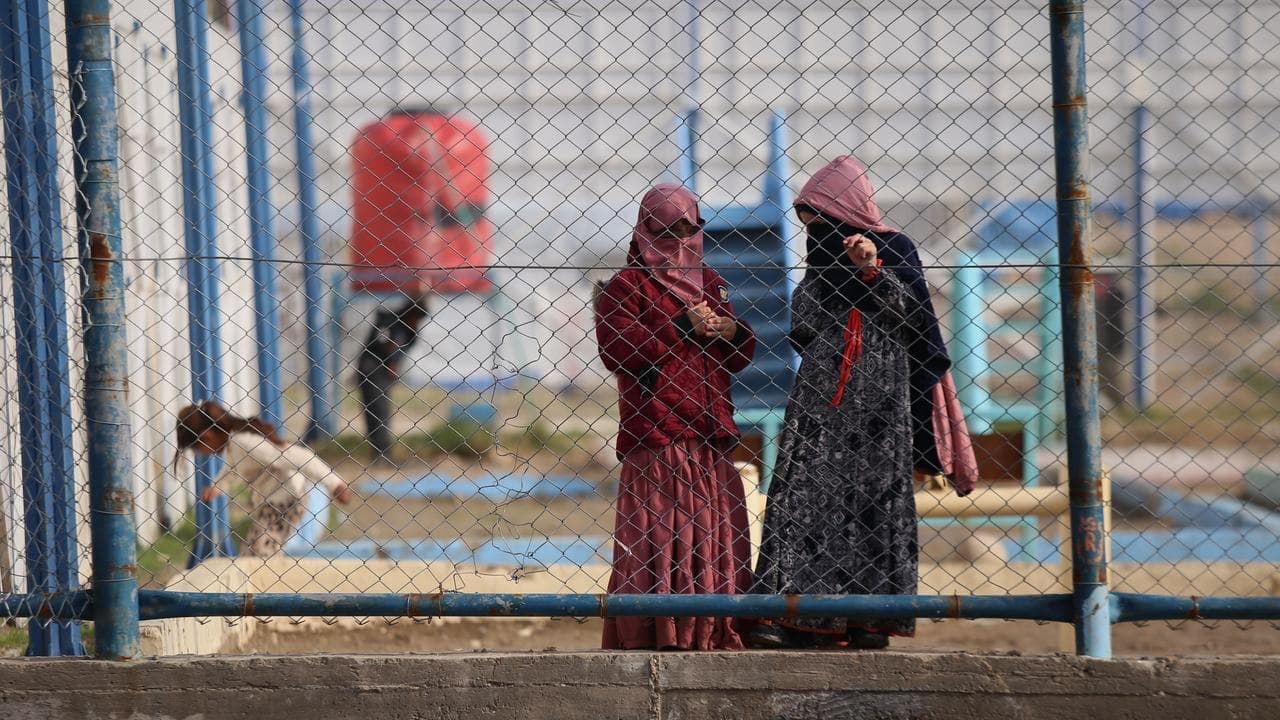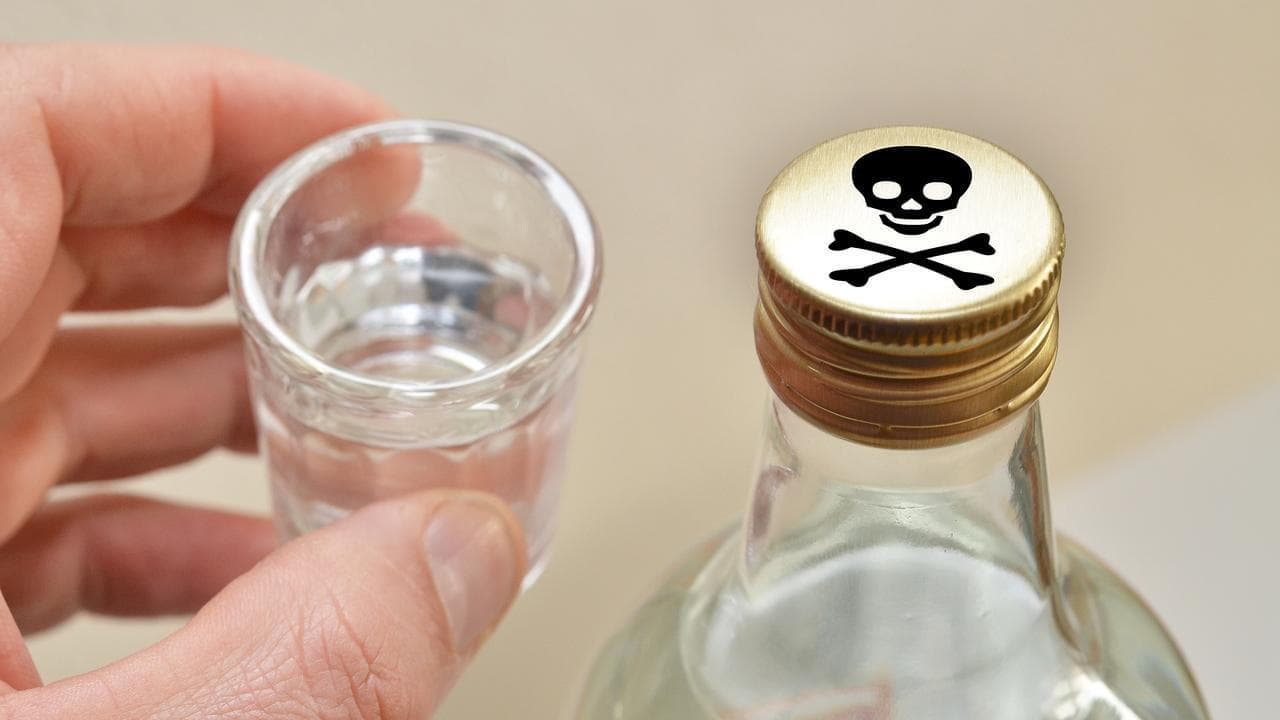The Statement
A Facebook post uses data about miscarriages to cast doubt on the safety of COVID-19 vaccinations, despite there presently being no evidence of a causal relationship.
The February 23 post, shared by an Australian user, lists the details of women in the United States who had received a COVID-19 vaccine and also experienced a miscarriage. A screenshot details their ages, when they received the COVID-19 vaccination, the date of their miscarriage and how many weeks pregnant they were at the time, as well as the identification number for that miscarriage on the Vaccine Adverse Event Reporting System (VAERS).
The post's caption reads, "Please if you're pregnant do not get the c19 v a x - do your own research it's all publicly available".
At the time of writing, the post had been viewed more than 17,000 times and shared more than 90 times. Variations of the post have also been shared here and here.

The Analysis
The post's miscarriage data is from the VAERS reporting system used by both the Centers for Disease Control and Prevention (CDC) and the Food and Drug Administration (FDA) in the US. VAERS is used to record adverse health events experienced after vaccinations, but as VAERS states, it is not designed to determine if a vaccine caused a health problem. Instead, it helps determine if further investigation is required.
While authorities in Australia are not recommending pregnant women routinely receive the COVID-19 vaccine, medical experts told AAP FactCheck there is presently no evidence to suggest the Pfizer and Moderna vaccines cause miscarriages.
As of February 2021, the FDA has approved two COVID-19 vaccines for emergency use in the United States - the Pfizer/BioNTech vaccine and the Moderna vaccine. In Australia, the Therapeutic Goods Administration (TGA) has also approved the Pfizer vaccine and AstraZeneca vaccine.
At the time of writing, CDC records showed almost 94 million doses of COVID-19 vaccine had been administered in the US.
To help monitor adverse events that may be related to any vaccination, the CDC and FDA established VAERS, where anyone who experiences a negative health event after a vaccination can report it. The system provides the CDC and FDA with information to "further assess a possible safety concern".
The cases listed in the social media post are from the VAERS database, however, the website states "VAERS reports alone cannot be used to determine if a vaccine caused or contributed to an adverse event or illness".
"The reports may contain information that is incomplete, inaccurate, coincidental, or unverifiable. Most reports to VAERS are voluntary, which means they are subject to biases," it says.
According to a scientific review of VAERS, interpreting data from the system alone or out of context "can lead to erroneous conclusions about cause and effect, as well as the risk of adverse events occurring following vaccination".
"Because VAERS data do not include an unvaccinated comparison group, it is not possible to calculate and compare rates of adverse events in vaccinated versus unvaccinated individuals and determine if vaccination is associated with an increased risk of an adverse event," the review states.
Associate Professor Paul Griffin, an infectious diseases physician and microbiologist from the University of Queensland, says currently there isn't the same level of data for COVID-19 vaccines as for other vaccines but there's nothing to suggest adverse outcomes for pregnancy.
"(Health authorities) haven't yet, in many parts of the world, recommended the vaccine to (pregnant women) just as we wait for more data, but that's not because of any safety concerns or any suspicion that there's any adverse effects in that group. It's just that, as is with all populations, we want to make sure we have ample data to support use in that group," he told AAP FactCheck.
Nikolai Petrovsky, a professor of medicine from Flinders University in Adelaide, said it was usual to base recommendations about vaccine use on data and evidence.
"Normally, we would never recommend a vaccine or drug be used in pregnancy until it has been shown to be safe and approved for this use," he told AAP FactCheck in an email.
"Although I understand clinical trials have commenced for the Pfizer vaccine in pregnant women, I am not aware any data has been made available from this as yet."
Recommendations on whether pregnant women should receive the COVID-19 vaccines differ between countries but most health authorities advise pregnant women to speak to their doctors first.
With the US recording more than 500,000 deaths due to COVID-19, the CDC and the American College of Obstetricians and Gynaecologists (ACOG) recommend pregnant women discuss with their doctors and if they choose, be offered the vaccination if they are part of the priority group recommended to receive the COVID-19 vaccine.
In a TV briefing, Dr Anthony Fauci, the Director of the US National Institute of Allergy and Infectious Disease, said since the emergency use approval (EUA) of COVID-19 vaccines "approximately 20,000 pregnant women have been vaccinated with no red flags, and this is being monitored by the CDC and the FDA".
In Australia, the Department of Health's vaccination decision guide does not explicitly recommend pregnant women receive the Pfizer COVID-19 vaccination, instead it recommends they discuss the option with their doctors.
"We do not routinely recommend COVID-19 vaccine in pregnancy. You and your health professional can consider it if the potential benefits of vaccination outweigh any potential risks," it states.
The Royal Australian and New Zealand College of Obstetricians and Gynaecologists (RANZCOG) said on February 22 there is currently no evidence of an increased risk of miscarriage or birth defects linked to COVID-19 vaccines.
"Although the available data do not indicate any safety concern or harm to pregnancy, there is insufficient evidence to recommend routine use of COVID-19 vaccines during pregnancy," RANZCOG says.
"However, if a pregnant woman meets the definition of being particularly vulnerable, then she should discuss the option of COVID-19 vaccination with her obstetrician, GP and/or midwife."
Posts regarding the miscarriages and VAERS data have been fact checked here, here, here and here while AAP FactCheck has previously debunked claims that COVID-19 vaccinations cause people to become sterile.

The Verdict
The post's data on miscarriages suffered following a COVID-19 vaccination has been taken from the official VAERS reporting system, which does not verify events nor establish causality.
While there is limited official data on the vaccines' safety and efficacy in pregnant women, there is presently no evidence linking it to miscarriages.
Missing Context - Content that may mislead without additional context.
AAP FactCheck is an accredited member of the International Fact-Checking Network. If you would like to support our independent, fact-based journalism, you can make a contribution to AAP here.












